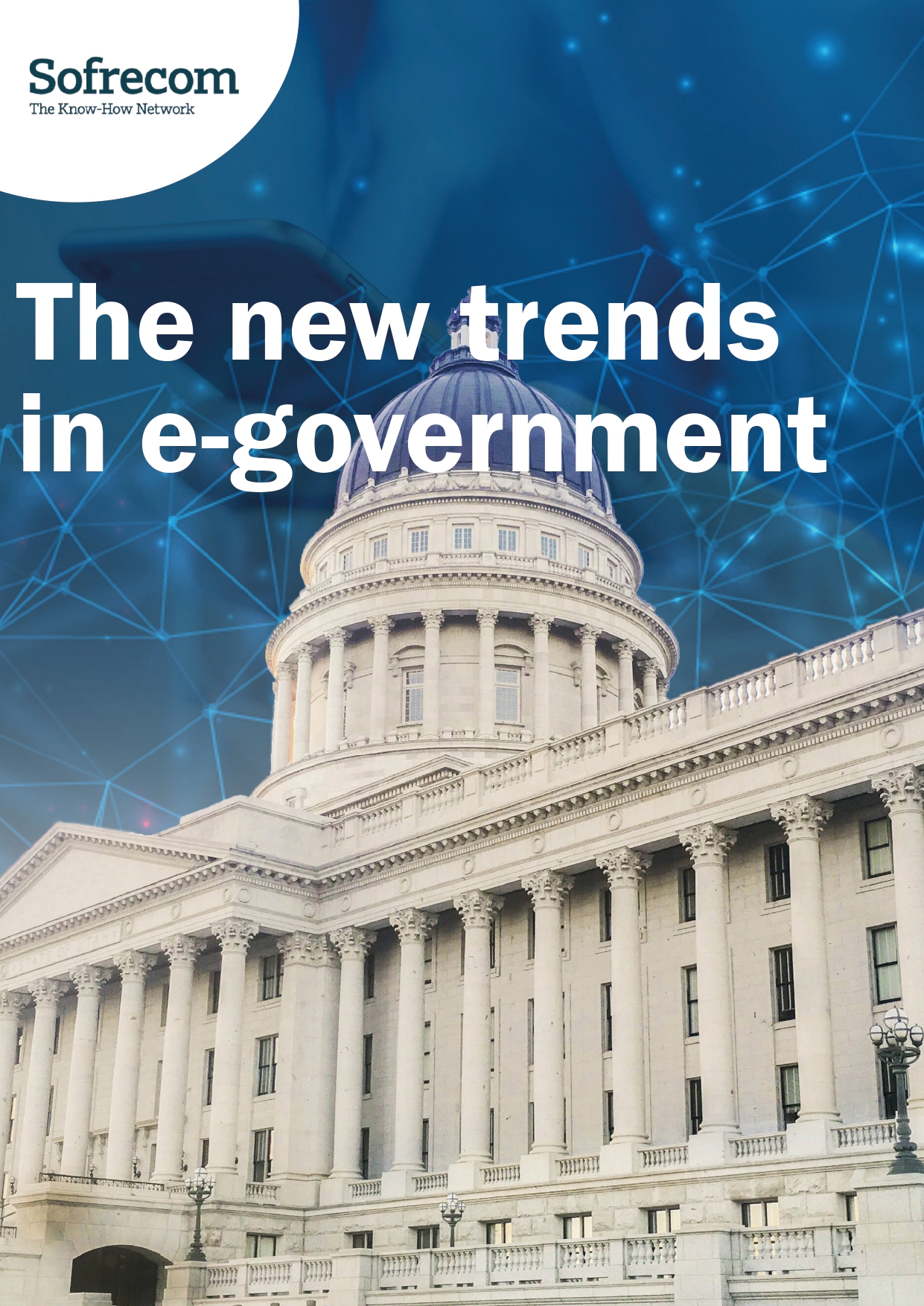

According to David Malpass, President of the World Bank Group: “Removing the barriers for entrepreneurs means improving employment, increasing tax revenues and increasing incomes, all of which are required to reduce poverty and improve living standards”. For example, governments that focus on streamlining administrative processes and providing innovative digital services to businesses generate direct and indirect benefits for their countries.
Digitalizing the public sector and simplifying its administrative procedures is not enough; these processes must contribute to curbing inequalities, fighting environmental degradation and eliminating poverty.
According to the International Telecommunication Union (ITU), nearly 87% of people in developed countries used the Internet in 2019, compared to only 47% of those in developing countries. Digital technology must above all be widely accessible, inclusive and established for the long-term. It is fundamental that public strategies provide the means for digital inclusion particularly to populations with specific needs, for instance, indigenous peoples and people living in rural areas, people with disabilities, women and girls, young people and children.
Making digital inclusion a reality means giving individuals the opportunity to fulfill their potential thanks to information and communication technologies (ICT). Being connected to the Internet means being able to get informed, complete administrative procedures remotely (civil status, property, taxes, etc.), take part in training, look for a job, consult a physician, benefit from alert services, keep in contact with friends and family...
Improving the business climate: one way to limit the digital divide
Since 2003, the World Bank’s annual Doing Business report has analyzed regulations in 190 economies in 12 areas. It measures the ease of doing business for small and medium-sized enterprises. The report sheds light on the design of national reforms and motivates these reforms through country-by-country benchmarking.
The criteria for assessing savings range from electrification to ease of starting a business, tax burden and protection of the right to property. While digitization is not a criterion in itself, it transcends all the others. It has a significant impact on the ranking and in particular that of African economies, where digital innovation is a driver of economic growth.
This ranking has spurred governments around the world to undertake reforms aimed at improving businesses’ operating environments, with the ultimate aim of enabling sustainable economic growth.
Africa and the Middle East top the list of countries having initiated reforms
Since 2005, the World Bank has identified nearly 3,850 reforms carried out worldwide. According to its latest Doing Business 2020 ranking, 115 countries implemented 274 reforms between May 2018 and May 2019. Sub-Saharan Africa alone accounts for 25% of these reforms. North Africa and the Middle East did their part as well, with 13 of the 20 countries in the zone implementing 57 reforms (21%). The list of the 10 economies that made the greatest strides in the latest ranking includes Saudi Arabia, Jordan, Bahrain and Kuwait.
Doing Business: driving investment in digital
The digitization of processes and services is one of the main means used by economies to make them simpler, more efficient and, ultimately, ever more useful to both companies and the government itself. Let us take a closer look, with a few examples.
Bahrain, which implemented a record-setting nine reforms between May 2018 and May 2019, rose in nine of the ten areas assessed by the study and its overall ranking rose from 62 to 43 from 2019 to 2020, making for a 19-spot surge.
Upon closer examination of the reforms themselves, it quickly becomes clear that the digital transformation of Bahrain’s public sector is ultimately behind this strong performance.
In this respect, several initiatives are worth noting:
- the implementation of a Benayat online platform for managing building permits,
- the digitization and publication of electricity connection information, for greater transparency,
- or for instance electronic payment of social insurance contributions to facilitate the payment of taxes by companies.
Lastly, Bahrain facilitated contract enforcement by establishing a specialized commercial court and authorizing electronic notification for subpoenas.
Morocco surged 7 spots, thanks in particular to the acceleration of cross-border trade. It achieved this by rolling out electronic payment for shipping costs and implemented paper-free procedures across the customs clearance system.
In Saudi Arabia, building permit applications are now processed via an on-line platform. Togo, one of the 10 most active countries in improving business regulation in Sub-Saharan Africa uses the same approach. The country has made all the necessary documents, approval receipts and fees available online.
In order for companies to derive the greatest possible benefit from the new digital services offered by their governments, it is of course essential that modern, high-quality infrastructures first be deployed across the territory. The ambitions of Doing Business thus help motivate governments to implement inclusive and ambitious digital strategic plans.
By way of illustration, the Government of Niger, in partnership with the African Development Bank, commissioned Sofrecom to carry out three complementary studies for the TransSaharan fiber optic Dorsale project. This large-scale project will help effectively extend connectivity at the regional level and curb the high cost of telecommunications. By facilitating access to quality digital services for populations, governments and businesses, this project is also aimed at fostering the emergence of a digital economy.
Analysis of the actions taken by governments in favor of the business climate and their Doing Business ranking once again anchors the idea that the advances sought cannot take place without the digital transformation of the public sector. Both directly and indirectly, the latter is reliant on investments in telecoms infrastructures and services, which ultimately contribute to the economic and social development of countries.
Article from our white paper: Digital inclusion, a societal challenge?





